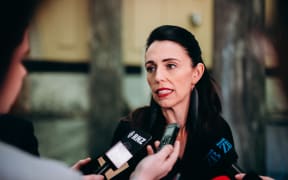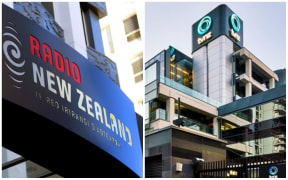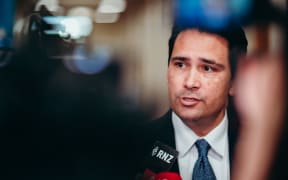D-Day is looming for a decision on the new public broadcasting "super entity", with the final Cabinet meeting of the year on Monday.
Watch Winston Peters reveal his party's stand on what public broadcasting in New Zealand should look like:
If Broadcasting Minister Kris Faafoi can lock down enough support, ministers will consider a proposal to disestablish RNZ and TVNZ and create one, new public broadcaster.
A cross agency advisory group delivered him a report last month with the sole recommendation of creating the new entity, in response to the major pressures bearing down on the media industry.
The group had representatives from both media companies and a range of public service agencies, including the Department of Prime Minister and Cabinet, Treasury and the Ministry for Culture and Heritage.
The Cabinet decision will be a high level agreement in principle to get on with it, including commissioning a business case next year, and signing off on initial legislation.
Government ministers have been reluctant to comment specifically on the proposal, saying at this stage it was still speculation.
Initially New Zealand First wouldn't comment on the proposal saying it was still speculation.
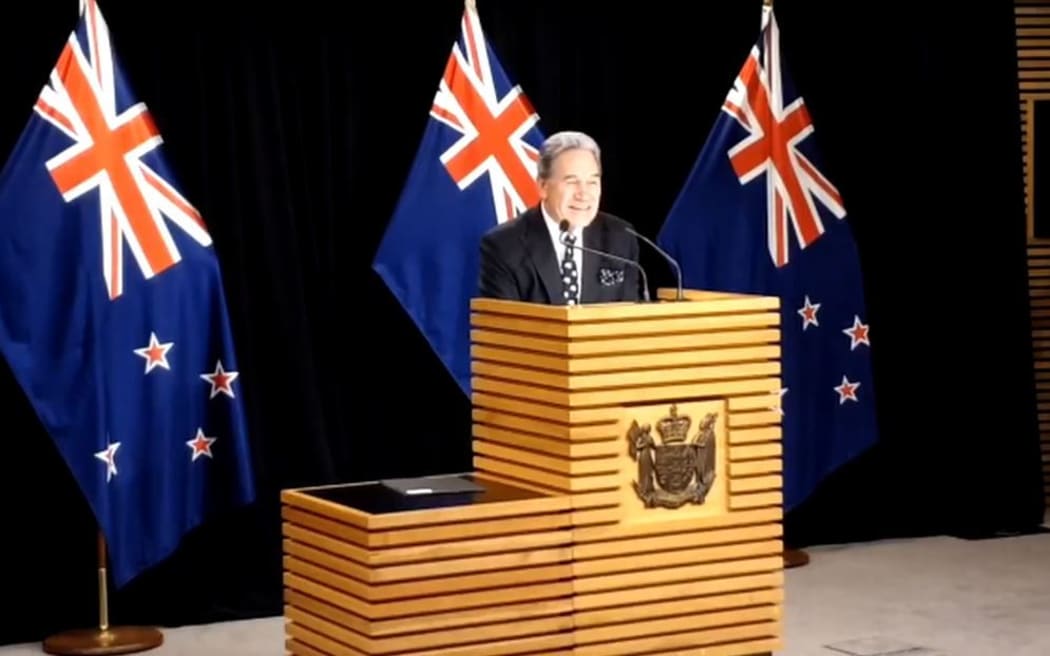
Winston Peters addressing the media about his party's policy on the media. Photo: RNZ
However, speaking to media this morning its leader Winston Peters acknowledged all the media outlets, especially regional reporters.
"The future of TVNZ, RNZ passes a public interest test."
He said it had been the NZ First policy and position to support and strengthen public sector media.
"For this reason, we welcome the initiative of Minister Faafoi to progress work in this area. Both Coalition partners are in agreement on the need to protect and future-proof TVNZ and RNZ."
While an overarching direction was set, details, design and costing had yet to be worked out, he said.
There were questions to be asked about whether TVNZ and RNZ could be sustainable as separate entities, he said, in a scenario where "scores of jobs are going to go in circumstances when they shouldn't".
"I hope that public broadcast looks like the voice and sounds of New Zealand."
He said it possibly would be two separate entities but by combining their resources, values and assets.
"So, you can still have two separate voices and organisations, but that is for the decision-makers to decide."
He couldn't say what the agenda for Monday was but "this stance today sets the scene for a more focused decision-making process".
The broadcasting minister has to secure support from New Zealand First before any progress can be made - he may have to convince some of his Labour colleagues as well.
RNZ understands some of those discussions with Labour's coalition partner have been around the process under which the new entity would be established, with such an ambitious undertaking.
There are several factors to consider, including whether public sector officials from agencies driving the proposal have enough expertise to make influential decisions, the delicate balance between having commercial and non-commercial content in one public service broadcaster, and the risk to the operations of RNZ and TVNZ during the transition period - that could be up to three years.
One for the finance minister is how much it's all going to cost and how much he's prepared to commit to the new entity in an election year Budget.
There's also a question about whether ministers should have more than one scenario to consider, which the current paper does not allow for.
Legislation laying the regulatory and market groundwork would have be passed before much else happens, and as with any other bill, individual parties have the opportunity to vote in support, or pull that support, through the various stages.
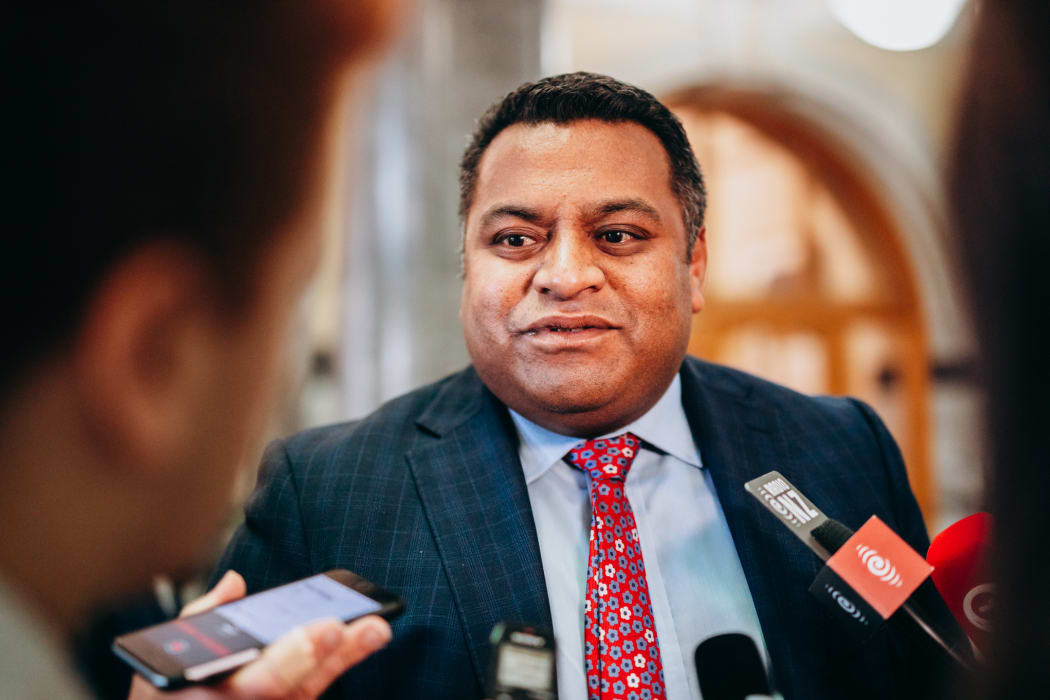
Broadcasting Minister Kris Faafoi Photo: RNZ /Dom Thomas
The pressure is on Faafoi who has said he would have a final announcement by Christmas, although when asked just a few days ago that was a "hope".
Giving himself a deadline also gives parties with whom he's negotiating a bit of extra leverage as the parliamentary year draws to a close.
The paper is likely to go to Cabinet on Monday but even so an announcement may not be made until the New Year given there will only be two sitting days after that before Parliament adjourns.
In its report to the minister, the advisory group concluded the status quo was "unsustainable" and recommended the new entity be established.
There are guidelines for how it would operate, including having a "clearly defined public media mandate and purpose, with the core functions of a globally recognised public media entity".
It would provide public media services across a variety of platforms, "some of which may be advertising free". TVNZ earns revenue from advertising but RNZ is commercial free.
The new entity would have a "mixed funding model" that would be funded both directly from the Crown, and from a range of "non-Crown" sources including advertising, sponsorship and subscriptions.
It would operate as a not-for-profit, and would have "statutory protection for editorial and operational independence".
'Our reporters are underpaid, overloaded' - Peters
"My party's fundamental position always has been and remains that a fourth estate is essential although sadly the news media is in dire straits."
"The case for help is clear. The digital revolution has its advantages, but the shift in advertising revenue from the traditional outlets in Google and Facebook is suffocating the industry."
He said ad revenues were bleeding dry resulting in the closure of community papers and loss of quality journalism.
"Newshub can't find a buyer while TVNZ is not paying a dividend to the Crown," Peters said.
"It's not clear that a country of our size is coping with a digital media shift."
He said the fourth estate was collapsing and the tide was low.
"There are trends in journalism which are not serving New Zealanders well. Our reporters are younger, the depths of experience is shallower."
"Our reporters are underpaid and overloaded - live blogging while writing snap stories creates a focus for breaking news, not thinking news."
He said reporters were quick to "spout personal opinion" adding that "confirmation bias is prolific".
The credibility of news stories was diluted and society should be concerned about the influence of the news, he said.
"Can we be confident that our media will enhance the democratic debate or is there a steady trend of celebrity, crime and shock stories causing our population to disengage?"
Peters said it was vital that RNZ and TVNZ's national voice be preserved.
"While the overarching direction has been set, the means of delivering the best outcome will still require a serious volume of work.
"Many questions on design and cost are still to be addressed,'' he said.
Peters on future of Stuff/NZME
New Zealand First would also support a Kiwishare proposal for NZME/Stuff.
"We will support the proposal should Minister Faafoi advance it through the Cabinet decision-making process."
"As part of the Kiwishare concept, the set number of print titles will remain open and operate during the duration of the agreement. This will assist in stemming the dramatic decline in the number of reporter jobs in the immediate future."
The Kiwishare proposal would not cost the Crown and taxpayers to join. He said the proposal was a part of the NZME takeover of Stuff and was a "major step in our media landscape".
"More significantly the NZME and Stuff subsidiary will still have to follow the usual process and seek Commerce Commission approval."
"The NZME proposal is in the greater public interest and national interest and NZ First as a government Coalition partner will support the proposal for Kiwishare in a future Stuff subsidiary."
NZME chief executive Michael Boggs has welcomed the support.
"The key features of the Kiwishare model that Mr Peters talked about today are keeping mastheads open and keeping journalism alive and well. And part of that will be around some metrics on how we perform but importantly actually the number of journalists we have,'' he said.
But while Boggs has convinced New Zealand First, the Broadcasting Minister said he was somewhat in the dark and hasn't discussed any details with NZME in more than a month.
He blamed leaked information for stalling talks.
"Well I think it's one of the things. It's pretty difficult to have some of those conversations when some of them were ending up on Stuff or the New Zealand Herald website - and talks just stopped,'' he said.
For RNZ and TVNZ, Faafoi confirmed Monday is D-day.
"I'm hoping that I'm not breaking convention but obviously there's one Cabinet left to go in the year and it will go there. Ministers thrash issues out there and hopefully you can get a proposal across the line, so we'll let you know how that goes on Monday,'' he said.
One person not convinced by a broadcasting super entity is National's Simon Bridges.
"My worry is that creates an overly powerful monolythic beast when what we need in the media scene in New Zealand is many voices competing and the like,'' he said.
Bridges he hasn't given the NZME/Stuff proposal much thought but would want editorial independence to remain between the two outlets.
Finance Minister Grant Robertson is tight-lipped on what funding, if any, has been allocated for a potential RNZ/TVNZ replacement.
"Look I strongly believe in the strengthening of public media in New Zealand, it's more important than ever for our democracy.
"Clearly there will be price tags attached to that, exactly what they are and how that goes out depends on what we end up deciding as a Cabinet,'' he said.
Both RNZ and TVNZ declined to comment on the matter.


